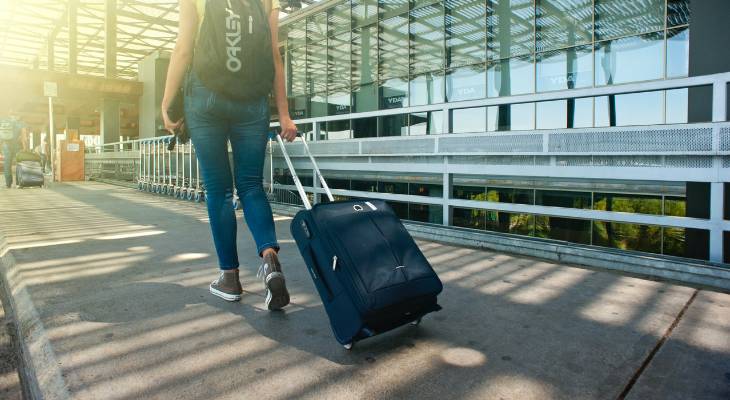“Our business is inbound tourism, so with the airport closed we had no tourists to host in Malta, meaning €0 revenue for the duration of the closure,” begins Alan Arrigo, Director at Robert Arrigo & Sons, looking back on the travel ban and COVID-19 mitigation measures of the last months.
However, this didn’t mean that the company – one of Malta’s largest B2B incoming tour operators and destination management companies (DMCs) – was idle.
“For the first 10 days where tourists were still in Malta we were all hands on deck in supporting our partner tour operators and ultimately the tourists who were in Malta, assisting them (especially where some tourists arrived and were asked to quarantine) as well as coordinating their repatriation,” Mr Arrigo explains, adding that from a financial perspective, they were also busy with processing refunds to clients who couldn’t travel into Malta.
With their office-based workforce shifting to remote working, he explains that “many of us already work with a digital first mindset so this just re-enforced the thinking throughout the company," adding that while it stands to reason that an organisation geared to handle 190,000 tourists every year would have some personnel idle, “everyone chipped in doing various different other aspects of the jobs at hand.”
And with the travel ban in place until the end of June, the company’s primary focus centred on being ready for when travel resumes. “We came up with a clear strategy and game plan, building internal protocols and coming up with a post COVID vision, as well as looking into the development of new tools and products that can help enhance our service portfolio.”

Bringing things to the present, Mr Arrigo paints a candid picture of the situation within the industry, affirming that since Malta is an island, its most crucial limiting factor are the direct routes that connect the airport with the source market. “The airport has indeed re-opened, however, only around a third of the flights are operating compared to 2019, so whilst there is a welcome flow of business it is limited,” he maintains, adding that going forward, whilst the industry is glad that there is a restart, “the recovery will be a long one and prospects are still grim for 2020 as they will not be enough to overturn the losses incurred during the lockdown.”
And while bookings have picked up, they are unsurprisingly far from the level registered before the pandemic, he laments, affirming that “ultimately, we cannot confuse a reopening with a recovery” and while the authorities have done everything to restart, recovery is down to the traveller. “One has to keep in mind that other downturns took two to five years to recover from, and this crisis was unprecedented in its magnitude and effect. This pandemic has destroyed some fundamental aspects of the industry and we can’t defy economic theory as value – real and perceived – needs this time to recover.”
Apart from being a Director at Robert Arrigo & Sons, Mr Arrigo is also Vice Chairperson of the Tourism Section within The Malta Chamber and Treasurer of the Federated Association of Travel and Tourism Agents (FATTA). Speaking of the long-term effects of big events like the pandemic, he points to its potential to leave behind a trail of disruption.
“It may reduce people’s willingness to spend and take risks, shake confidence and destroy business momentum. The pandemic was the ultimate stress test for many tourism businesses – those that survive are the ones who have been diligent in managing their risk and finances,” he maintains.
As for how long it will take the industry to recover, Mr Arrigo emphasises the fact that tourism is composed of different sectors that have very different purposes of travel, so there is no one answer.
Noting that non-vulnerable individual travellers are expected to resume travel first, he maintains that leisure group travel will make a significant restart in March 2021, with many having postponed bookings to 2021 and given that the current limitations make it harder to enjoy travel in a group. Meanwhile, according to Mr Arrigo, the hardest hit sector will be MICE (meetings, incentives, conferences and events). “If our source markets experience downturns and recessions, the first thing that business will cut from their expenses is non-essential overseas meetings and overseas conferences,” he says.

With many sharing the view that tourist numbers will not soon be going back to what they were pre-COVID, there’s been a lot of emphasis on aiming for quality over quantity, and in Mr Arrigo’s view, this should be the case, in an ideal scenario. However, he attests, “Malta does not have the necessary product and infrastructure to cater for tourists with higher spending power to make it sustainable financially.”
In order to have a greater emphasis on quality, the tour operator maintains, Malta would need to experience a mindset shift and increased investment. “Our product is only as good as our weakest link, and other destinations have bigger supplier markets to sieve out their weakest links and propose better quality travel experiences. Therefore, without significant investment, I don’t see how the tourism authority, incoming agents and DMCs can properly market the island to higher end tourists in sustainable volumes if the product is inferior to the higher quality expectations these tourists expect. We only get one shot at getting it right and doing it incorrectly would do more damage in the long run,” he warns.
Ultimately, Mr Arrigo believes that COVID-19 has shown that tourism has a high indirect economic impact on Malta’s general economic outlook, far beyond what most economists measure. “It was only when tourism was gone, where we see its true value to the economy. Therefore, it is important that the authorities realise the invaluable role incoming agents and DMCs play in the tourism eco-system in order to enable them to attract the kind of business that will make Malta’s industry more resilient and sustainable,” he concludes.
Main Image:
